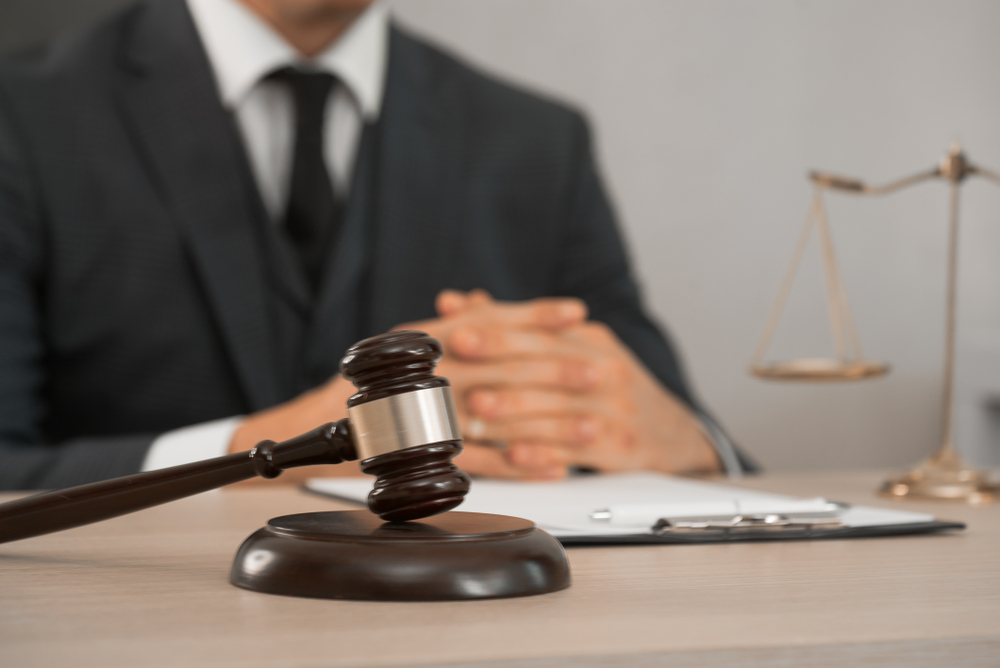Being released from jail on bail can bring a sigh of relief. While bail bonds offer you a taste of freedom, your release is also the beginning of a new journey – preparing for your court appearance. Going to court can be confusing, scary and overwhelming for anyone. After all, the outcome of these cases officially seals your fate. Don’t show up unprepared and fumble your case. This guide will walk you through the essential steps to prepare for your upcoming court date.
Importance of Attending Your Court Date
The first step to getting ready for your court appearance is to plan on showing up! Just because you’re out of jail doesn’t mean you’re home free. Missing your court dates while on bail is equal to a first-class ticket back to the big house. Avoid being tracked down by a bounty hunter and make concrete plans to appear in court.
Get Your Case Organized
Whether you have a family lawyer on hand or have been appointed by the courts, now is the time to meet with your representation and get organized. Gather up all paperwork and documentation that pertain to your case and present it to your attorney. This will allow them to be prepared and make your court date an organized and efficient affair.
The paperwork you’ll need for your day in court really depends on your situation. Some courts may require copies of your arrest records, copies of pleadings filed for your hearing, and copies of correspondence with law enforcement officials.
If you’ve been released on a bail bond, the court may ask for proof of your bondsman’s license, copies of your bail bond documents, and copies of documents you’ve submitted to the bondsman if property was put up as collateral.
If you believe you have evidence that can help you get out of further jail time, such as writings, paintings, photographs, or key witness accounts, bring these documents with you to back up your claim to innocence.
Make four separate copies of these records for the court, court clerks, yourself and the opposing party. As the defendant, you should keep a detailed timeline of events related to your case in order to discuss it with your lawyer.
Visit the Courthouse Before Court Appearance
When the courts schedule a hearing, the time and date are usually non-negotiable. Even though you already plan on attending your hearing, make sure you have a clear idea of how long it will take you to get to the actual courthouse.
The goal is to arrive at your appointment early, so knowing your route and potential traffic hiccups is essential. Before your appearance, pick a weekday to travel to the courthouse and arrive when you plan to check-in. This will help you create a trusted route but will help relieve some of the stress involved with being on time for your appearance.
Get Your Outfit Ready for Court
Your court date counts! Wear conservative and professional attire when it’s time to appear before a judge.
Avoid flashy or casual clothing. Neutral tones, hairstyles, and accessories that present a professional look can help you look your best during a court appearance. You’re there to present your case, not make a fashion statement.
Court Etiquette
Adhering to courtroom etiquette is crucial as your actions in court can significantly impact how the judge and jury perceive you.
When in court, address the judge as “Your Honor,” stand when speaking to the court, and maintain a respectful demeanor throughout proceedings. It’s important to speak clearly, avoid interruptions, and refrain from emotional outbursts or disrespectful gestures.
Equally important is treating all court personnel and the opposition courteously, even in disagreement. By following these guidelines, you show respect for the legal process and present yourself in a more favorable light, potentially enhancing your credibility in court.
Understanding Court Process
While the specific flow of court varies depending on the type of case – such as DUI, theft, or property damage – most cases follow a general pattern that includes arraignment, pretrial conferences, potential plea bargaining, and, if necessary, a trial and sentencing.
Each stage between arrest and acquittal involves crucial legal procedures that can significantly impact the outcome of your case. It’s vital to work closely with your attorney, who can explain each step in detail, outline what’s expected of you, and help you prepare for court appearances. Your lawyer can provide invaluable insights into potential outcomes, your rights, and obligations throughout the process.
By actively engaging with your attorney and understanding the court proceedings, you can make more informed decisions and effectively participate in your own defense.
Court Appearance Support
Facing a court appearance can be an emotionally taxing experience, often causing stress, fear, anxiety, and uncertainty. These feelings can manifest as sleepless nights, difficulty concentrating, mood swings, and even physical symptoms.
When getting ready for a court appearance, acknowledge these emotions and take proactive steps to manage them. Seeking support from trusted family and friends and professional counselors can provide much-needed emotional relief and coping strategies.
Engaging in stress-reduction techniques, maintaining a healthy routine, and possibly joining a support group can also be beneficial.
Remember that caring for your emotional well-being is essential during this challenging time. By managing your stress and anxiety effectively, you’ll be better prepared to face the legal process and work constructively with your defense team.
Court Appearance FAQs
What should I bring to my court appearance?
For your court appearance, bring a government-issued ID, all relevant court documents, any evidence or proof of compliance, and contact information for your attorney if you have one. It’s also helpful to have a pen and paper for notes and a method for payment if needed.
How should I dress and behave in court?
Dress conservatively and professionally for court, opting for formal or business casual attire. Be respectful and courteous, addressing the judge as “Your Honor,” speaking clearly, and not interrupting. Stand when required, keep your emotions in check, and keep your phone turned off to avoid disruptions.
What happens if I miss my court date while out on bail?
If you miss your court date while out on bail, the judge may issue a warrant for your arrest, and you could forfeit your bail. This can also result in additional charges, so contacting your attorney immediately is important to address the situation.
Can I travel while out on bail before my court appearance?
This all depends on if you’ve missed court dates or skipped bail in the past. If the courts don’t deem you a flight risk, you may be granted permission to travel while bonded out.
Bail Bond a Crucial Step in Preparing for Court Appearance
Understanding the bail process is crucial when facing legal issues. Bail bonds are financial arrangements that allow defendants to be released from custody while awaiting trial, typically for a fee of 10-15% of the total bail amount set by a judge.
When selecting a bail bonds service, it’s important to consider factors such as local legal expertise, 24/7 availability, compassionate guidance, and flexible payment options.
1st Call Bail Bonds offers these benefits, providing round-the-clock support and expert assistance to navigate the complex bail process. Our bondsmen understand the stress of legal situations and strive to make bail more accessible through flexible payment plans.
Whether you’re seeking general information about bail bonds or need assistance with a specific situation, contact us today to start the application process.
Relevant Resources for your Court Appearance
Court Hearing Preparation Guide
The Process Between Arrest to Acquittal




